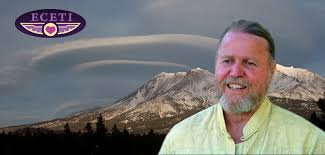Tuesday, March 24, 2020
Coronavirus - A Long Planned Excuse To Transform The Economic System

Monday, March 23, 2020
James Gilliland Huge Energy Waves Multidimensional Effects End Time Madness

Allison Coe As You Wish Talk Radio "Future Insights and Off World Encounters"

James Gilliland Who Will Be Left Standing In The Days To Come

David Wilcock on The Great Pandemic II: What's Really Going On? (NOW WITH SLIDES WORKING!)

A New Owner of The Planet, Schrödinger's Planet

Friday, March 13, 2020
The Study of Fundamental Consciousness Entering the Mainstream

IN BRIEF
- The Facts:Consciousness is appearing to be a fundamental property, just like liquids, solids and gas, consciousness and its connection to the physical material world is now gaining big time credibility.
- Reflect On:How much do we have yet to discover? Are we ready to abandon what we thought we knew in light of new discoveries and evidence?
The world-renowned neuroscientist Christof Koch, spent nearly two decades working alongside the co-discoverer of the DNA molecule, Francis Crick. Their mission was to find the neurobiological basis of consciousness. They discovered many insights into cognition and the functioning of perception, yet the central enigma, the nature of consciousness itself, remained mysteriously elusive.
In 2009, Koch shocked the scientific community by publishing his conviction that consciousness probably isn’t just in brains, but is a fundamental feature of reality. This is a view known to philosophers as ‘panpsychism.’ The theory Koch is now dedicating his research to is called ‘Integrated Information Theory’ or ‘IIT.’ It is the brainchild of neuroscientist Giulio Tononi of the University of Wisconsin-Madison.
In explaining his theory, Tononi asks us to consider a simple light sensitive photo diode like those found in a digital camera. A simple diode might respond to just two states: light or dark. We could present our diode with any number of images, yet regardless of the picture, the diode conforms to one of only two possible states. Is it light, or is it dark?
Now consider yourself looking at the same picture, lets say, of the Eiffel Tower on a beautiful spring day in Paris. For us, looking at this image results in a reduction from a near infinity of possible states. Not an image of the Andromeda galaxy, not a childhood picture of your mother, not cells dividing in a Petri dish and so on. Because of the vast number of images we are capable of recognizing, each one is highly informative. For Tononi, the vast amount of information capable of being integrated in the brain means that we have a comparatively huge capacity for consciousness.
Tononi’s theory, that consciousness is born out of networks with high integrated information, has novel ways of being tested in the laboratory.
In studies with sleeping participants, Tononi and his colleagues used transcranial magnetic stimulation to send a ripple of activity through the cortex of sleeping participants. The researchers found that when dreaming, this ripple reverberated through the cortex longer than when participants were in stages of dreamless sleep. This demonstrated that during dreaming, when the brain is conscious, the cortex has a higher degree of integration.
In another experiment, the researchers built tiny robots known as ‘animats’ that were placed into mazes. The animats used simple integrated networks capable of evolving over sequential generations. To their surprise, the greater the degree of integration that the animats evolved, the quicker they were able to escape the mazes. For Tononi this finding suggested that consciousness may play a more central role in evolution than had previously been thought.
The mathematical value of integrated information in a network is known as phi. But Tononi’s theory, now the topic of serious mainstream discussion, has an extraordinary implication. Phi didn’t just occur in brains, -it is a property of any network with a total informational content greater than its individual parts. Every living cell, every electronic circuit, even a proton consisting of just three elementary particles have a value of phi greater than zero. According to Integrated Information Theory, all of these things possess something, albeit but a glimmer of ‘what it is like’ to be them. Tononi states:
“Consciousness is a fundamental property, like mass or charge. Wherever there is an entity with multiple states, there is some consciousness. You need a special structure to get a lot of it but consciousness is everywhere, it is a fundamental property.”
Integrated information theory is in its infancy and there are still many questions it must face. Did the information of brains operate at the level of the neuron, or the protein, or something deeper still? The electromagnetic field of the brain, as observed by psi researcher Dean Radin, is always re-establishing its quantum connection to the entire universe. Could a much richer informational interaction exist than has yet been imagined?
Physicists such as John Wheeler have laid the groundwork for a radical new understanding of reality, in which matter, the laws and constants of nature, and indeed the entire universe is best described, not in terms of physical objects, but through the play and display of a fundamental dynamic information.
Quantum mechanics suggests that at the deepest level of nature, the entire physical universe is interconnected. Might the total information of the universe be integrated in some deep sense? Is it in a mysterious way conscious of itself?
As spiritual traditions throughout the ages have long asserted, instead of isolated and separate experiencing beings, we may experience on behalf of the greater evolving system in which we find ourselves.
In Koch’s highly anticipated 2012 book, ‘Consciousness – Confessions of a Romantic Reductionist’, he states:
“I do believe that the laws of physics overwhelmingly favored the emergence of consciousness. The universe is a work in progress. Such a belief evokes jeremiads from many biologists and philosophers but the evidence from cosmology, biology and history is compelling.”
Regardless of the validity of Tononi’s theory, today increasing numbers of scientists and academics are convinced that the existence of consciousness simply cannot be sensibly denied. The study of fundamental consciousness is now entering the mainstream. This movement consists of thinkers in and outside of the mind sciences. Yet despite their different academic backgrounds, they are united by two common convictions: that consciousness is an intrinsic rather than incidental emergence in the universe, and that any complete account of reality must include an explanation of it.
Sources:
Koch, C. (2009, August 18). A complex theory of consciousness: Is complexity the secret to sentience, to a panpsychic view of consciousness? Scientific American.
Tononi, G. (2008). Consciousness as integrated information: A provisional manifesto. Biological Bulletin, 215(3), 216-242.
Edlund, J. A., Chaumont, N., Hintze, A., Koch C., Tononi G., & Adami, C. (2011). Integrated information increases with fitness in the evolution of animats. PLoS Computational Biology, 7(10).
Radin, D. I. (2006). Entangled Minds: Extrasensory experiences in quantum reality. New York: Simon & Schuster.
Koch, C. (2012). Consciousness: Confessions of a Romantic Reductionist. MIT Press Books.
Scientists Explain How Intuition May Be The Highest Form of Intelligence

IN BRIEF
- The Facts:Science is beginning to recognize the reality of intuition, where it comes from and how natural it is within all of us.
- Reflect On:Is intelligence only about what is built within the mind? Are we spiritual beings having a human experience? What is there outside of material reality? What can we learn from the rise of post-material science?
This article was inspired by one published in Forbes with the same title. Who would have ever expected to see Forbes, a finance publication, post something about intuition? This is a surefire sign that times really are changing.
So, if you’re thinking, intuition has nothing to do with intelligence, then you’re not alone. Because intuition is so difficult to measure and observe. The dictionary definition of intuition is as follows:
“1. the ability to understand something immediately, without the need for conscious reasoning.”
Intuition is our first instinct; it’s what we feel right away before the mind has time to come in and consciously analyze. Often times we hear of people who are near death, and everything becomes clear and they just instinctively know exactly what needs to be done to get themselves out of the situation; there is no time to hum and haw and weigh options, and intuition takes over, if we let it.
Where Does Intuition Come From?
You know when you get that “gut feeling” that maybe something isn’t right? That is your intuition, and while we feel it in our gut or stomach area, many people often argue it comes from the heart. I recently watched an incredible documentary called The Power Of The Heart that explained how this feeling is actually coming from the heart, and the heart is always the first to react to any given situation. The heart intuitively knows what’s up.
Why Does Forbes Call Intuition the Highest Form of Intelligence?
Gerd Gigerenzer, a director at the Max Planck Institute for Human Development and author of the book Gut Feelings: The Intelligence of the Unconscious, claims to be both intuitive and rational:
In my scientific work, I have hunches. I can’t explain always why I think a certain path is the right way, but I need to trust it and go ahead. I also have the ability to check these hunches and find out what they are about. That’s the science part. Now, in private life, I rely on instinct. For instance, when I first met my wife, I didn’t do computations. Nor did she.
Intuition itself doesn’t equal intelligence, but intuition with action most certainly can be intelligent. You’ve probably said it to yourself before, I knew that was the answer; I should have went with my first instinct. You see, this is an example of how your intuition often knows what your conscious mind does not. But just as Gigerenzer says, he tests his first instinct to see if it was correct and often time it is. So, intuition does hold some form of intelligence.
Below is a nice little bit from Dean Radin, Chief scientist at the Institute of Noetic Sciences
Trusting Your Intuition
So, despite often having that great idea, do you find that you have a difficult time trusting this answer or path is correct? The amazing thing about intuition is that it can be thought of as a muscle. Every time you use it and trust it, it becomes stronger. So, if you feel your intuition isn’t very clear, try strengthening this muscle. Next time, act on the first idea that comes your way. For example, I had plans to meet a friend, but her phone died, and I had to go home to grab something before I picked her up. I was circling the area in which I was supposed to meet her, but she was nowhere to be found. My intuition kept saying, Go to Green Cuisine, she’ll be there, but my mind was telling me, Don’t go there, it’ll be a hassle to find parking, and it’s doubtful she’ll even be there. By the time she got her phone charged and gave me a call, I found out that she too had an intuitive feeling to go to the restaurant and that’s where she had been waiting. Had I trusted this feeling right off the bat, I could have saved myself a lot of time and stress.
Try acting on the first thought you have, and see how often it leads you where you need to go, or gives you the right answer. You may be pleasantly surprised.
Help develop your intuition and get aligned with your soul purpose in our Explorer Lounge Program.
Much Love
Source:








